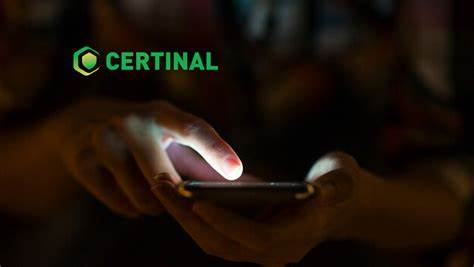Digital solutions have become essential for enterprises aiming to streamline workflows, increase efficiency, and meet global compliance standards. However, many large organizations still encounter challenges with eSignature implementations, from security and compliance issues to scalability limitations. Addressing these obstacles requires a modern, enterprise-ready eSignature solution that can meet the demands of complex, high-volume environments.
Certinal eSign offers advanced features designed to tackle these challenges. Below, we explore the top six eSignature challenges enterprises face and how Certinal esign provides effective solutions.
1. Compliance with Global Regulations
The Challenge
Enterprises operate in diverse regulatory environments, with standards like GDPR, HIPAA, and eIDAS and many more shaping compliance requirements across the globe. Managing these regulations, especially when operating across regions, can be challenging for legacy eSignature platforms that may lack robust compliance features.
The Solution
To ensure compliance, enterprises need a digital signature solution that offers tools such as customizable audit trails, secure data encryption, and automatic compliance checks for region-specific standards. Certinal provides all of these compliance-focused features, helping enterprises manage complex regulatory landscapes seamlessly.
2. Managing High Volume and Scalability
The Challenge
Enterprises often handle large volumes of documents across multiple departments, requiring eSignature solutions that can scale efficiently. Legacy platforms may struggle with high document volumes, resulting in slower processing times and bottlenecks in approval workflows.
The Solution
Certinal addresses these scalability needs with features like bulk signing, workflow automation, and multi-user access, all of which allow enterprises to handle high volumes without sacrificing speed or efficiency. This scalability makes Certinal an ideal choice for large organizations needing a responsive, high-capacity eSignature solution.
3. Security and Data Privacy
The Challenge
Data security is a top priority for enterprises, especially those handling sensitive information in industries such as finance, healthcare, and legal. Older eSignature solutions may lack advanced security measures, making sensitive data vulnerable to breaches and unauthorized access.
The Solution
Certinal’s comprehensive security features include multi-factor authentication (MFA), end-to-end encryption, and secure storage options. These tools ensure that sensitive data remains protected at all times, providing enterprises with a secure platform that meets stringent data privacy standards.
4. Integrating with Existing Enterprise Software
The Challenge
For large organizations, eSignatures must seamlessly integrate with existing enterprise systems like CRM, ERP, and cloud storage. Lack of integration creates disjointed workflows, forcing employees to switch between systems, which decreases productivity and increases error risks.
The Solution
Certinal is designed with integration flexibility in mind, offering easy API integrations with major business platforms. This seamless compatibility allows teams to manage documents within their existing systems, streamlining workflows and minimizing disruptions, which is essential for maintaining productivity in fast-paced enterprise environments.
5. Cost-Effectiveness in Large Deployments
The Challenge
With traditional eSignature platforms often costlier eSign pricing using user-based pricing models, costs can rise quickly as teams expand. Each additional user drives up the expense, making it hard for enterprises to maintain cost-effective eSignature operations at scale.
The Solution
Certinal’s transaction-based pricing model makes it a budget-friendly choice for large deployments. Instead of charging per user, Certinal aligns costs with actual document usage, allowing companies to scale affordably. This approach provides enterprises with greater financial flexibility, enabling them to expand access across teams without facing prohibitive costs.
6. Limitations of Legacy eSignature Solutions
The Challenge
Many enterprises still rely on legacy eSignature platforms like DocuSign lack modern, essential features like mobile optimization, AI-driven workflows, advanced compliance capabilities, and integration flexibility. These limitations slow down processes, increase security risks, and fail to meet today’s regulatory demands, which are more complex than when these older platforms were designed.
The Solution
A modern eSignature platform and one of the best DocuSign alternatives like Certinal incorporates advanced features to address these gaps. Certinal’s mobile-first design, AI-enhanced automation, robust compliance tools, and seamless integrations enable enterprises to operate more efficiently, securely, and flexibly. By moving beyond outdated technology, businesses can ensure that their eSignature workflows are optimized for today’s fast-paced, compliance-driven landscape.
Conclusion: Choosing an Enterprise-Ready eSignature Solution
For enterprises, selecting an eSignature platform that meets the demands of scale, security, compliance, and cost-effectiveness is crucial. Legacy eSignature platforms may struggle to keep up with the needs of modern businesses, making a flexible, enterprise-grade solution essential. Certinal addresses each of these challenges, providing an eSignature solution built for today’s complex regulatory and operational landscape.
Ready to elevate your eSignature experience? Book a Demo Today (www.certinal.com/request-a-demo)to see how Certinal can transform your enterprise workflows with advanced, compliant, and cost-effective digital signing.
